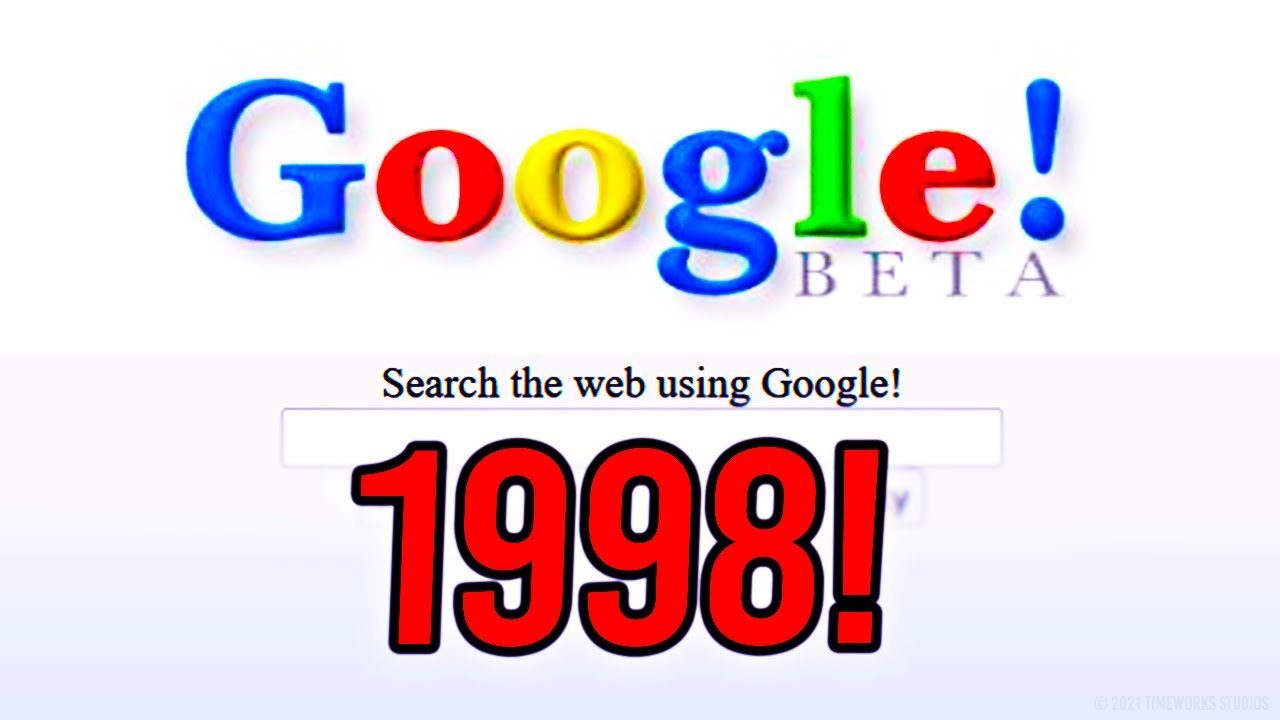Google In 1998

In 1998, two Stanford University Ph.D. students, Larry Page and Sergey Brin, set out to revolutionize the way information was accessed and organized on the internet. Little did the world know that their creation, Google, would become synonymous with search and evolve into one of the most influential companies of the modern era. In its humble beginnings, Google was merely a research project in a cluttered dorm room, but its impact would soon resonate across the globe.
At the time of Google’s inception, the internet was a vastly different landscape compared to today. Search engines like Yahoo!, AltaVista, and Ask Jeeves dominated the scene, but they often provided cluttered search results and struggled with relevance. Page and Brin recognized this inefficiency and sought to develop a better solution—one that would prioritize quality and relevance above all else.
Their breakthrough came in the form of PageRank, an algorithm that analyzed the relationships between websites to determine their relevance and importance. Unlike other search engines that primarily relied on keyword matching, PageRank evaluated the quality and quantity of links pointing to a webpage, effectively measuring its authority and trustworthiness. This innovative approach laid the foundation for Google’s search engine, allowing it to deliver more accurate and meaningful results to users.
In September 1998, Page and Brin officially launched Google from a garage in Menlo Park, California. The website featured a simple interface—a logo, a search bar, and a button—that belied the complexity of the technology behind it. Despite its minimalist design, Google’s search capabilities quickly garnered attention for their speed, accuracy, and efficiency.
One of Google’s defining characteristics was its commitment to providing users with a clutter-free experience. While other search engines inundated users with advertisements and irrelevant links, Google’s clean interface and relevant results set it apart. This user-centric approach would become a hallmark of Google’s philosophy, guiding its product development and business practices in the years to come.
As Google gained traction, it faced its fair share of challenges and skeptics. Industry giants like Microsoft and Yahoo! viewed the upstart search engine as a threat to their dominance and attempted to replicate its success. However, Google’s relentless focus on innovation and user experience allowed it to outmaneuver its competitors and solidify its position as the preeminent search engine.
In addition to its search engine, Google introduced several other groundbreaking products and services in its early years. Gmail, launched in 2004, revolutionized email with its generous storage space, intuitive interface, and powerful search capabilities. Google Maps, unveiled in 2005, redefined navigation by offering detailed maps, real-time traffic updates, and street-level imagery. These offerings further cemented Google’s reputation as a pioneer in technology and innovation.
Despite its rapid growth and success, Google remained committed to its founding principles of transparency and accountability. The company famously adopted the motto “Don’t be evil,” emphasizing its ethical responsibility to users, employees, and society at large. This commitment manifested in various initiatives, including Google’s philanthropic efforts, environmental sustainability programs, and advocacy for internet freedom.
By the end of the 1990s, Google had emerged as a dominant force in the technology industry, but its journey was far from over. Over the next two decades, the company would continue to expand its product portfolio, diversify its revenue streams, and extend its global reach. Acquisitions like YouTube, Android, and DoubleClick bolstered Google’s ecosystem and solidified its position as a multifaceted tech giant.
Today, Google is more than just a search engine—it’s a ubiquitous presence in our daily lives, shaping how we communicate, work, and access information. From its humble beginnings in a Stanford dorm room to its status as one of the world’s most valuable companies, Google’s journey is a testament to the power of innovation, determination, and vision.
As we reflect on Google’s origins in 1998, it’s remarkable to consider the impact that two Ph.D. students and their revolutionary idea have had on the world. What started as a research project has evolved into a global phenomenon, touching the lives of billions and shaping the course of human history. In an era defined by rapid technological advancement and digital transformation, Google stands as a beacon of progress and possibility—a reminder that even the most audacious dreams can become reality.




